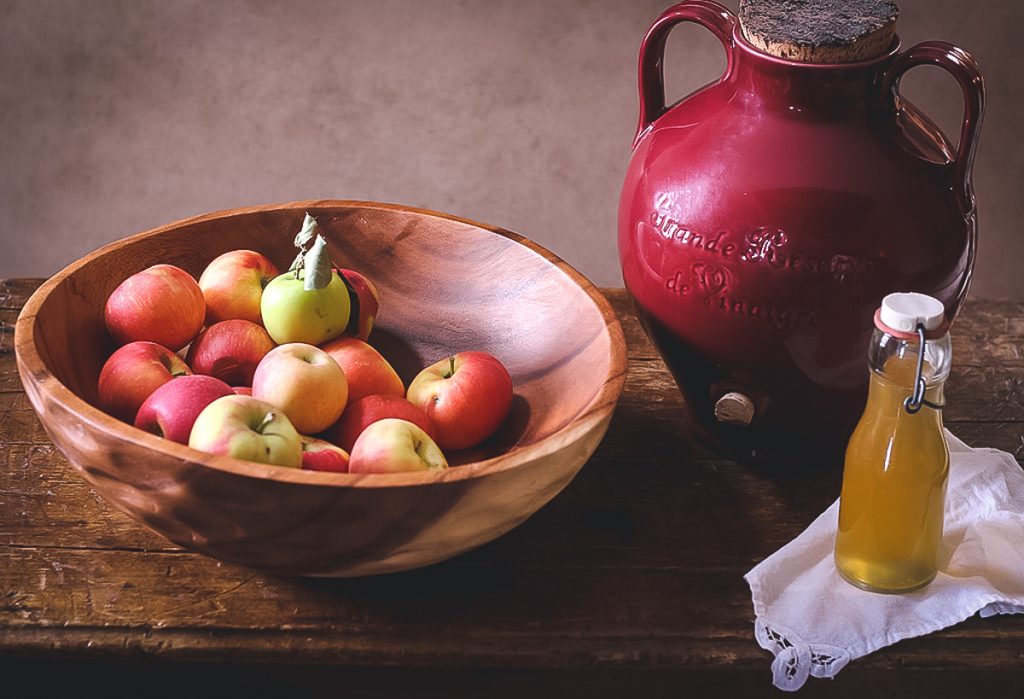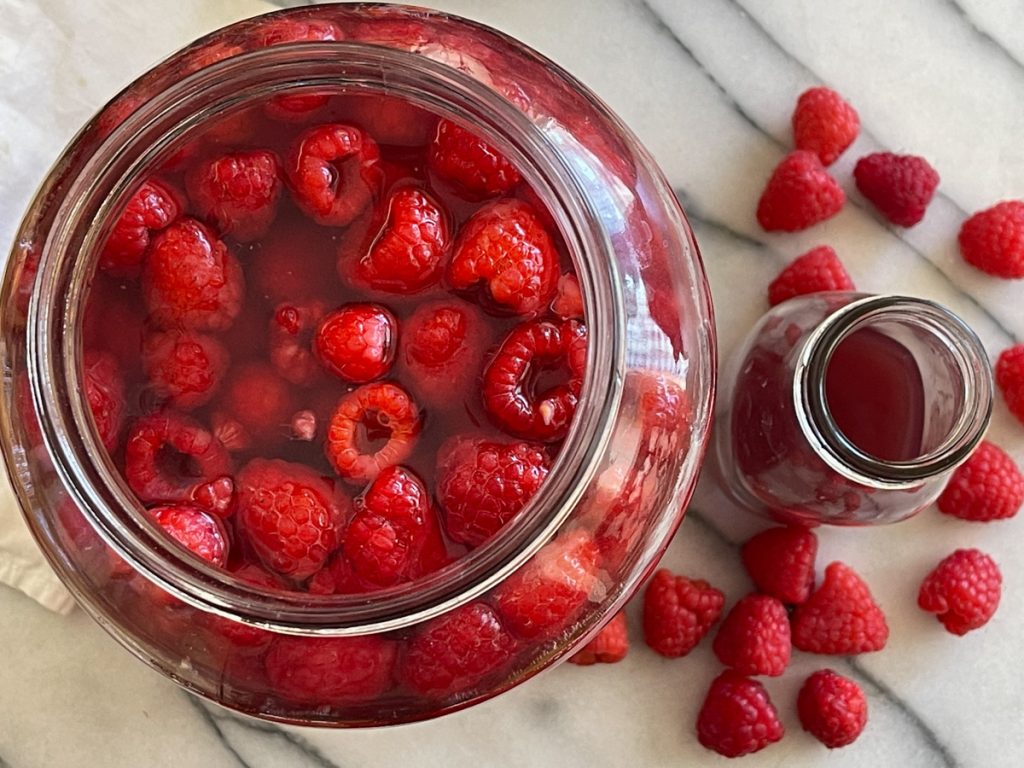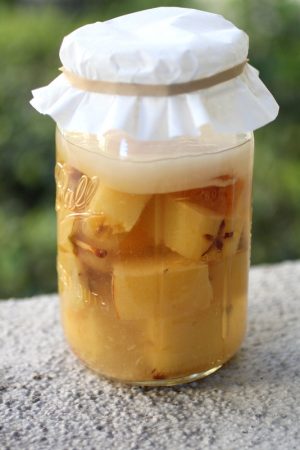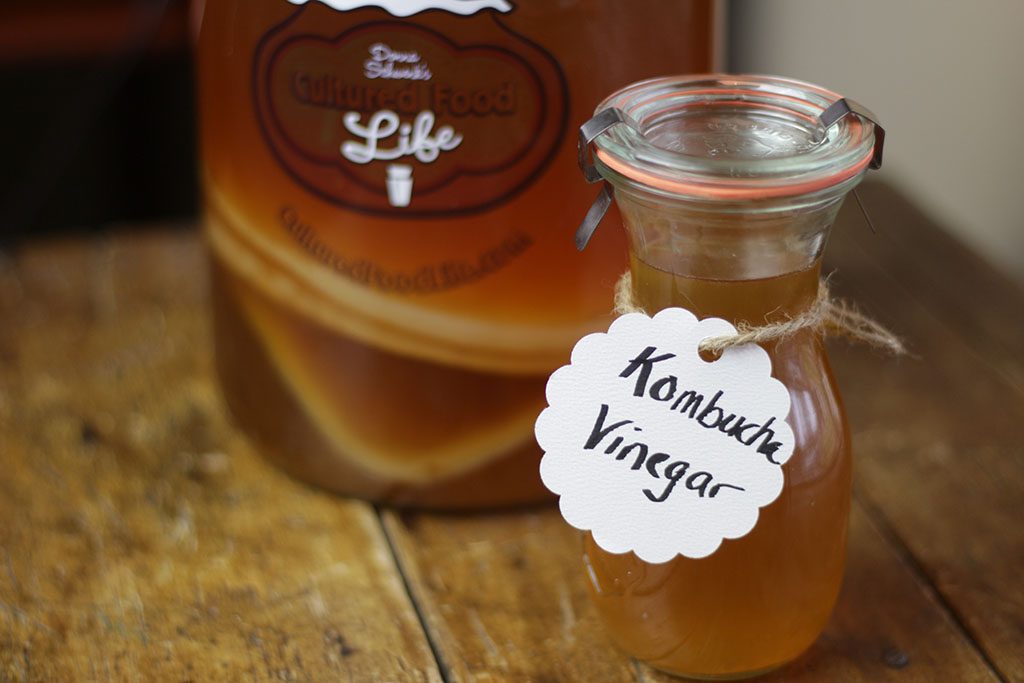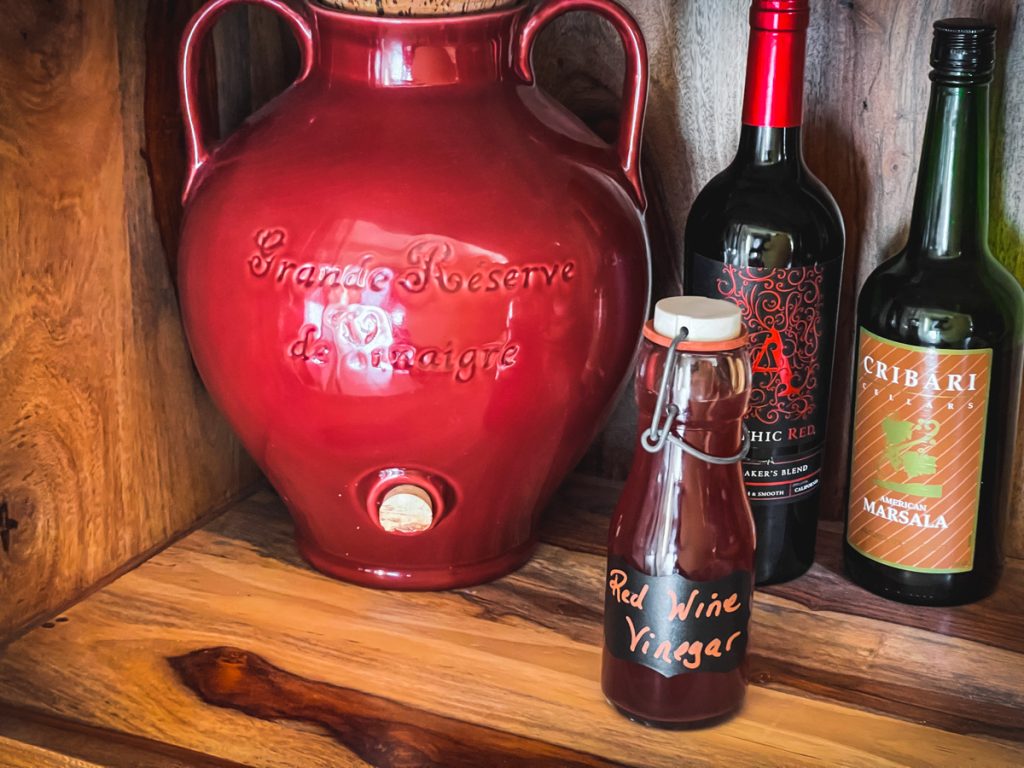
How To Make Your Own Vinegar — 5 Different Recipes!
Homemade Vinegar
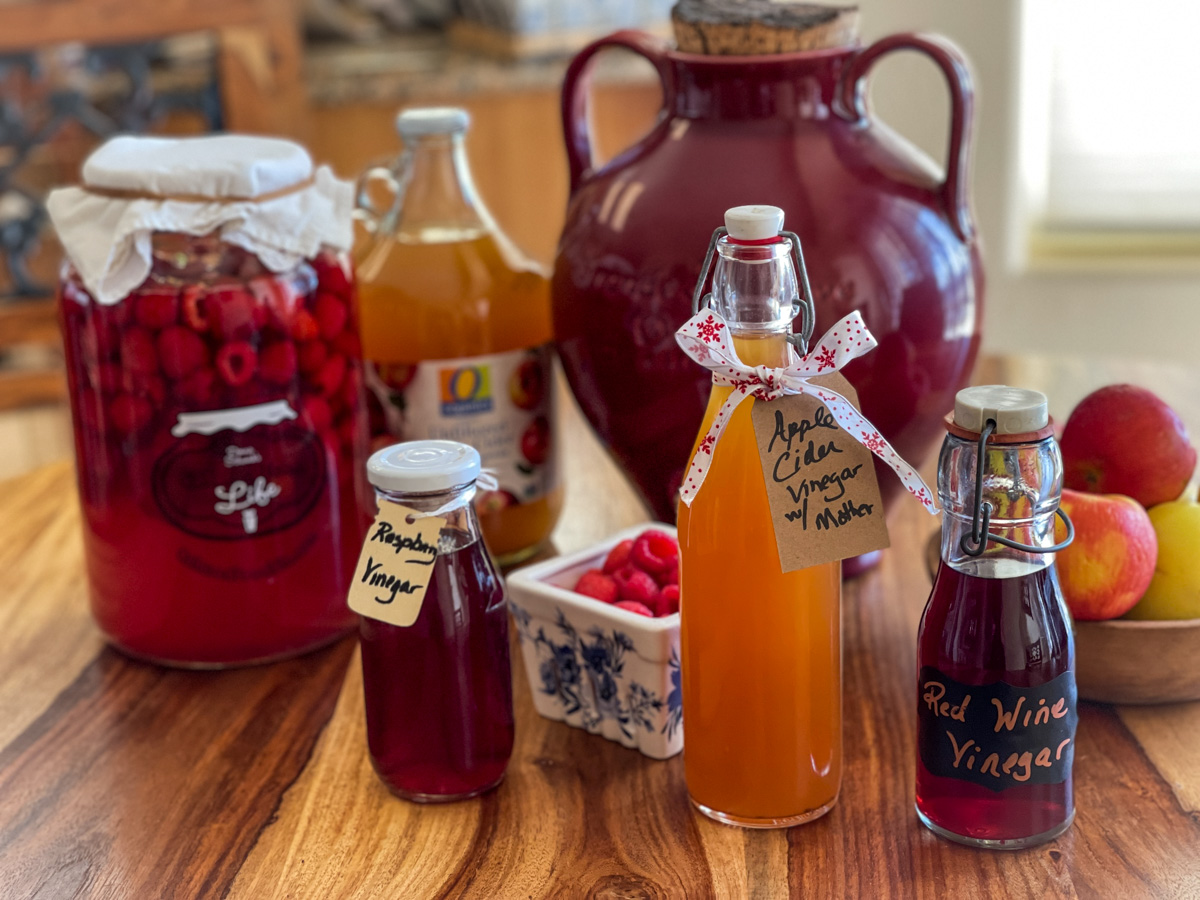
In the fall, I like to make homemade vinegar for Christmas gifts. It's the perfect time of year since temperatures cool down and vinegar likes cooler temperatures (68 to 70 degrees F) rather than warmer temps to do their fermentation. I've had so many people ask me if they could buy a bottle of my homemade vinegar, and it's something I really enjoy making and sharing. I was even given a vinegar pot by my sister back in 2010 and have been using it ever since. You don't really need a special pot, and some people use barrels to ferment their vinegar. A large glass gallon jar will work just fine, and they don't sell my pot anymore if you're wondering. Vinegar is so simple to make - you just add a few ingredients into a pot and let it ferment. Time is the only drawback since it can take some time, but if you start now it will be ready before Christmas.
My mom loves my vinegar more than anyone and moans when she consumes it straight from the bottle with a spoon. She said she'll take small spoonfuls throughout the day and loves it. So mom if you're reading this, you're getting a bottle of raspberry vinegar this year! Hang on, it's fermenting in my kitchen with the help of millions of microbes who hang out with me in my kitchen day after day.
Homemade vinegar is different from store-bought vinegar
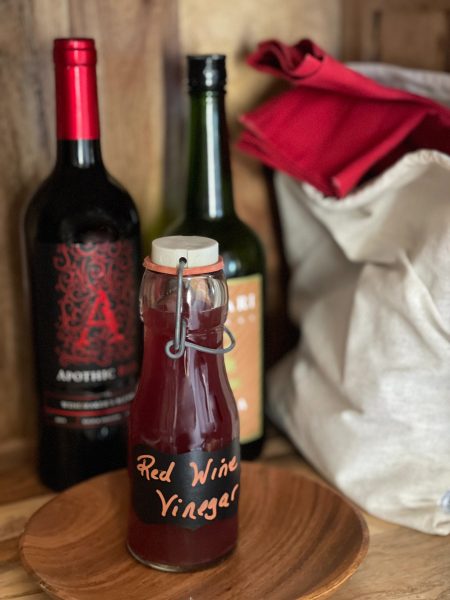 Homemade vinegar is different from store-bought vinegar. Unpasteurized, unfiltered vinegar still contains the "mother" as well as good bacteria and yeasts and other beneficial compounds. The pasteurized counterpart sold in stores does not contain the "mother." This dark, cloudy substance you can sometimes see at the bottom of the bottle is the collection of bacteria and yeasts created during fermentation. It has a rich taste and is loaded with health-giving properties. This too is a cultured food and makes the best vinaigrette and sauces. You can dip into your pot to get some vinegar to deglaze a pan or make salad dressings or marinades. It is made in a similar fashion to making kombucha and really just takes time as any cultured food would. Kombucha has more benefits since it's not fermented as long, but you can make kombucha vinegar from overly-fermented kombucha that works just like regular vinegar in many dishes. See my recipe for kombucha vinegar below. It takes about a month or two to make a pot, but you only have to make it once or twice a year. You can even flavor your vinegar with fresh rosemary sprigs. Just add a couple of sprigs to your vinegar when you're done.
Homemade vinegar is different from store-bought vinegar. Unpasteurized, unfiltered vinegar still contains the "mother" as well as good bacteria and yeasts and other beneficial compounds. The pasteurized counterpart sold in stores does not contain the "mother." This dark, cloudy substance you can sometimes see at the bottom of the bottle is the collection of bacteria and yeasts created during fermentation. It has a rich taste and is loaded with health-giving properties. This too is a cultured food and makes the best vinaigrette and sauces. You can dip into your pot to get some vinegar to deglaze a pan or make salad dressings or marinades. It is made in a similar fashion to making kombucha and really just takes time as any cultured food would. Kombucha has more benefits since it's not fermented as long, but you can make kombucha vinegar from overly-fermented kombucha that works just like regular vinegar in many dishes. See my recipe for kombucha vinegar below. It takes about a month or two to make a pot, but you only have to make it once or twice a year. You can even flavor your vinegar with fresh rosemary sprigs. Just add a couple of sprigs to your vinegar when you're done.
I'm not the only one that makes my own vinegar. I've heard that all French farm kitchens have a crock of rich deep-flavored vinegar working away somewhere. I have some French blood in me so maybe this is where I get it from. My grandpa would be proud. I try to eat a salad every day and having a good dressing or vinaigrette poured over fresh greens is essential to having the best tasting salad you'll ever eat.
Benefits of Consuming Vinegar
Apple cider vinegar is known for its healing properties and has been used as medicine in natural health communities for centuries. Literature reveals that Hippocrates used it with honey as a healing elixir, antibiotic, and tonic for general health in 400 B.C.
- Vinegar may help your gut stay healthy by decreasing inflammation in the colon. [1]
- Keeps your salads free of bad bacteria. In 2005, researchers tainted greens and spring onions with Salmonella and then treated them with vinegar to see if it combatted the Salmonella. The vinegar reduced it to undetectable levels! [2]
- Helps with weight loss. Several studies showed that consuming 1 or 2 tablespoons of apple cider vinegar before meals can help increase weight loss, body fat, and belly fat loss. [3,4]
- Helps with blood sugar levels. One study gave participants 1½ tablespoons of apple cider vinegar after a meal of a bagel, butter, and orange juice. Their blood glucose levels were taken at 30 and 60 minutes post-meal. Those who took apple cider vinegar had much lower blood glucose levels than the control group who received placebos. [5]
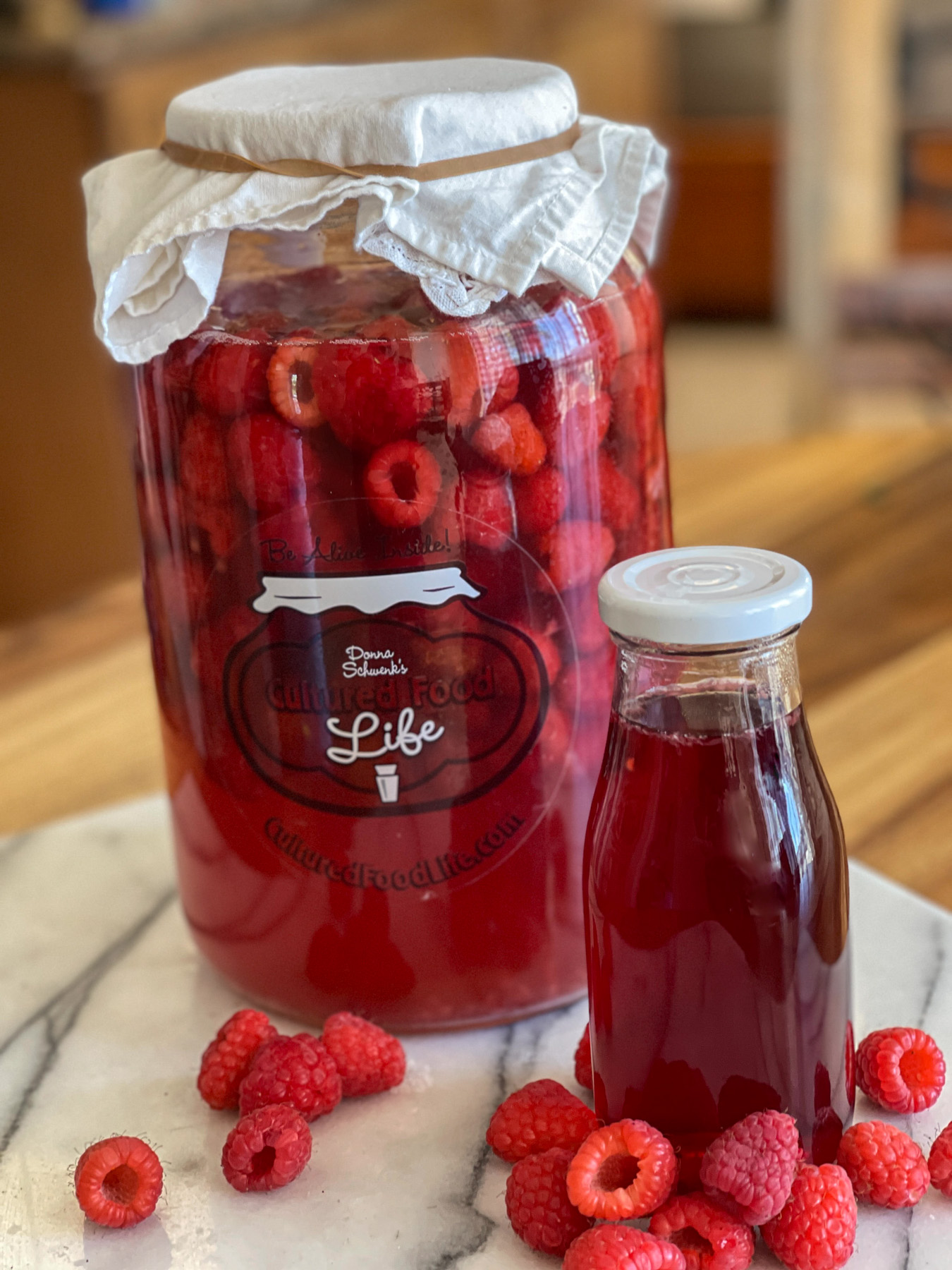
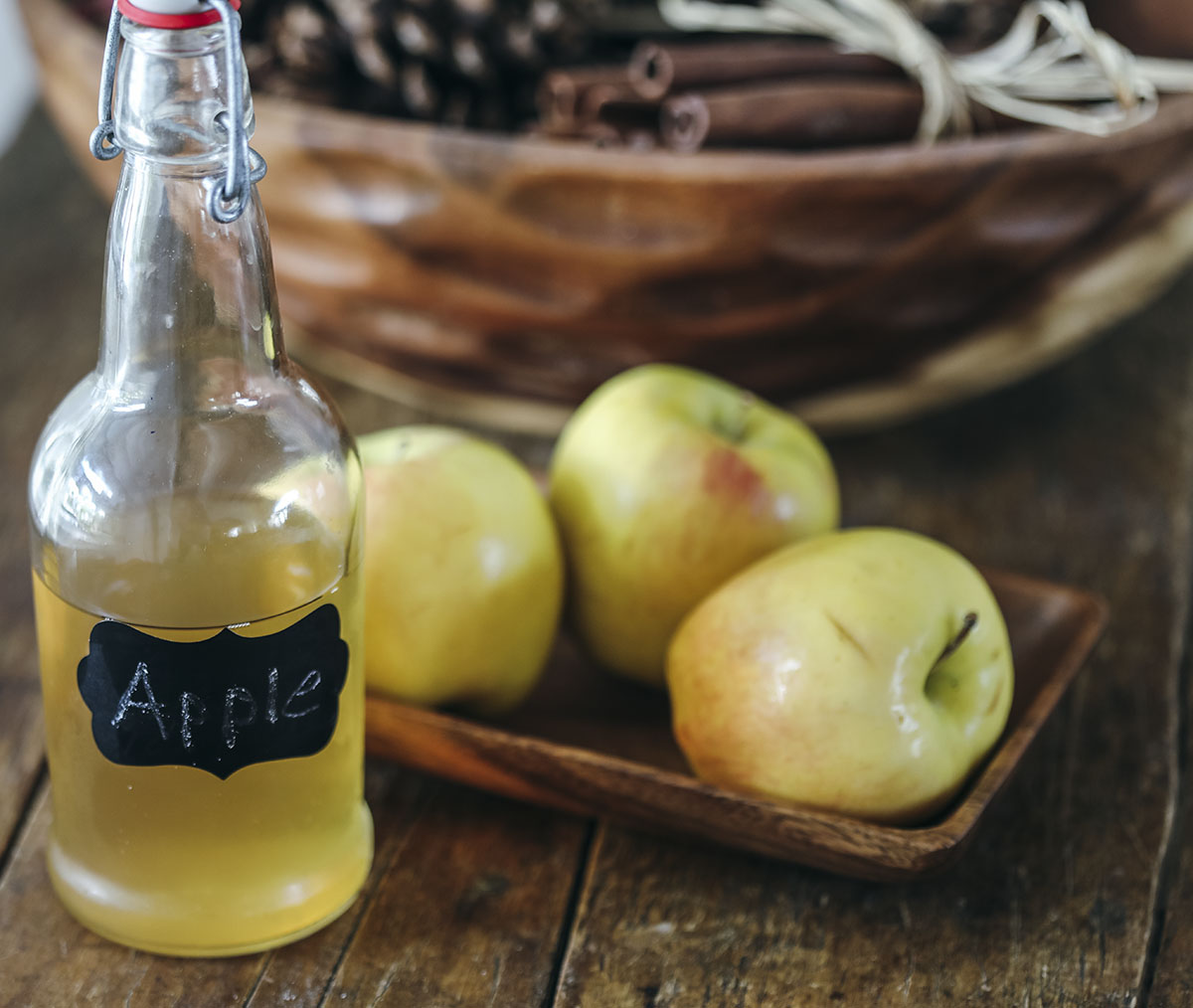

The Difference Between Kombucha and Vinegar.
Kombucha and vinegar both contain acetic acid. Acetic acid is considered an organic compound and is used as a natural preservative and common ingredient in a variety of health-promoting products and has other commercial uses too. Kombucha ferments contain about 1% acetic acid. Compare that to the average vinegar, which is very potent in its original state and is diluted to around 5% acetic acid.
Kombucha contains over 9 billion probiotics in an 16-ounce glass while vinegar has very small amounts depending on fermentation. However, Apple Cider vinegar does contain pectin which may act as a prebiotic, or food for beneficial bacteria.
Homemade Vinegar Recipes
We have several homemade vinegar recipes that are super simple to make. If you want to make your own vinegar, you will need to get a bottle of vinegar with what they call a mother which means that it hasn't been pasteurized. This is very easy to find at most grocery stores. You will see sediment at the bottom of the bottle and most of them say "with the Mother," or "unpasteurized vinegar." This is the good stuff that you'll need — live, active cultures to allow it to ferment properly. Then add apple cider or red wine and you're ready to go. If you want to make kombucha vinegar, it has its own "Mother," so you won't need to get one. We even have a recipe that you can make with apple scraps and kombucha. I added a new recipe made with raspberries too!
Listen To My Podcast
Making your own vinegar has many health benefits and the taste is so good you'll always want to make your own. Vinegar is so simple to make - you just add a few ingredients into a pot and let it ferment. Time is the only drawback since it can take some time, but if you start now it will be ready before Christmas. Check out how to make 5 different types of vinegar and before you know it you'll have homemade vinegar that will be a treasure to your friends and family.
Are you on the list?
Sign up today and I'll send you my free Getting Started Guide!
Each week I'll send you updates, tips, recipes, and more! You might even be a winner of my weekly giveaway! (starter cultures, memberships, and more!)
Come be a part of my cultured food family!

